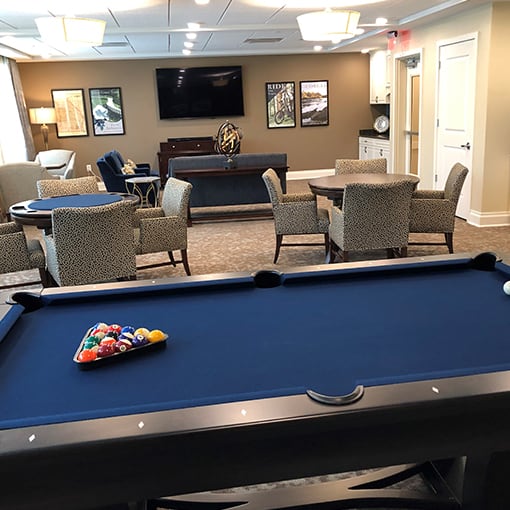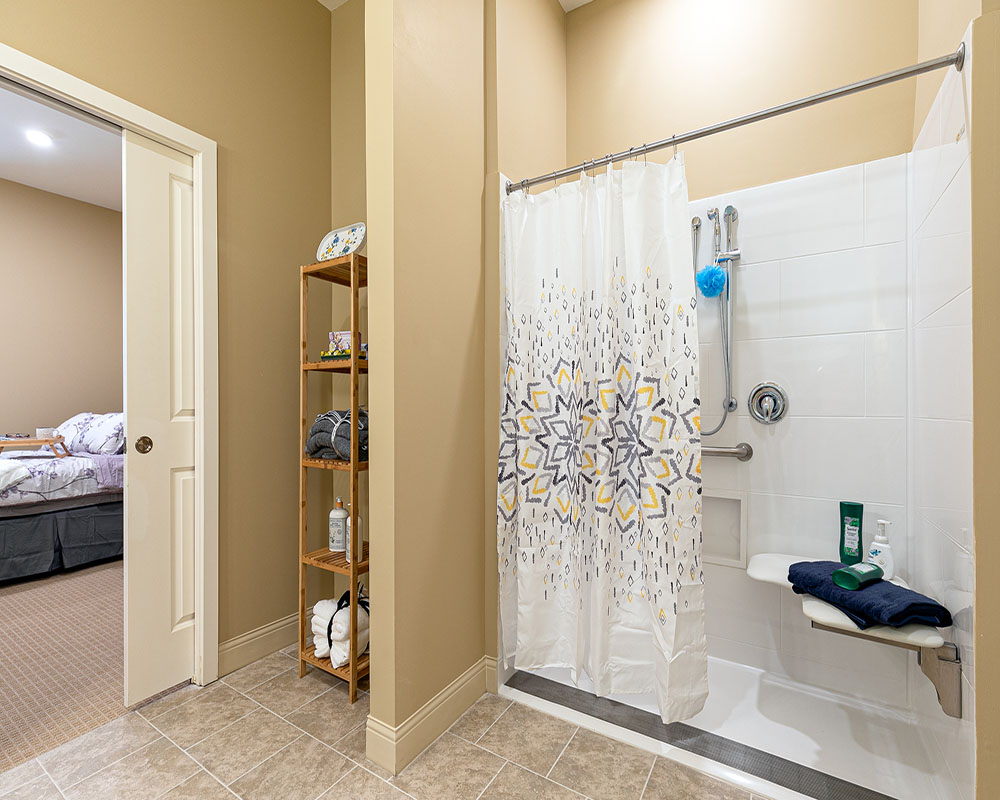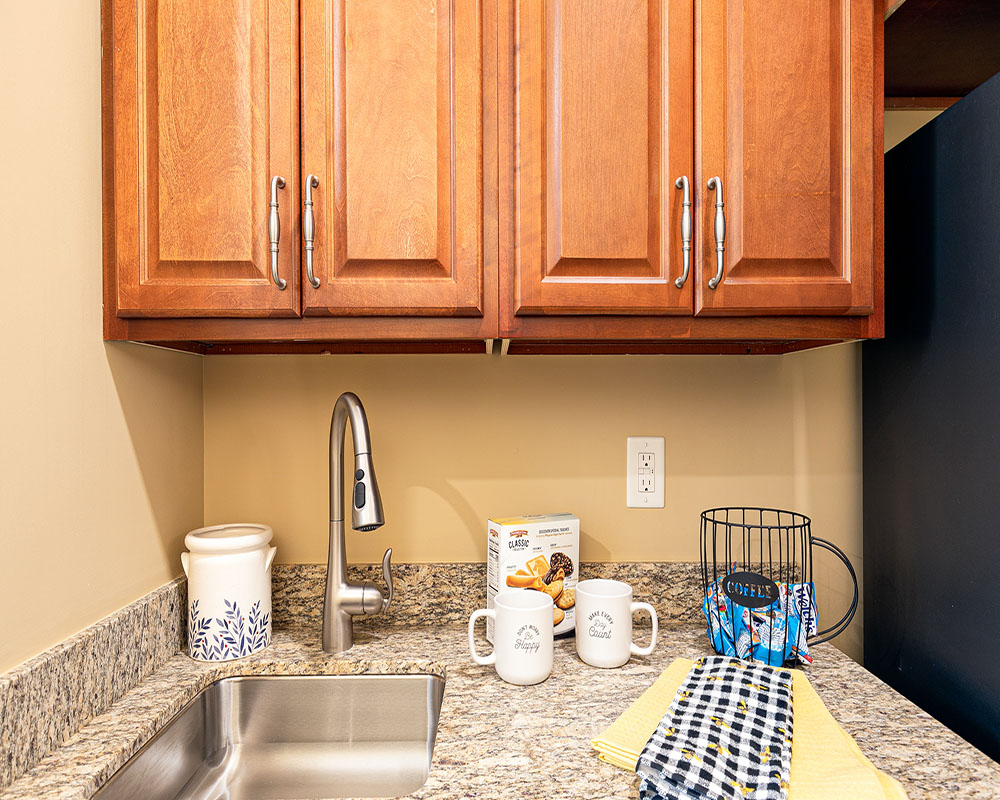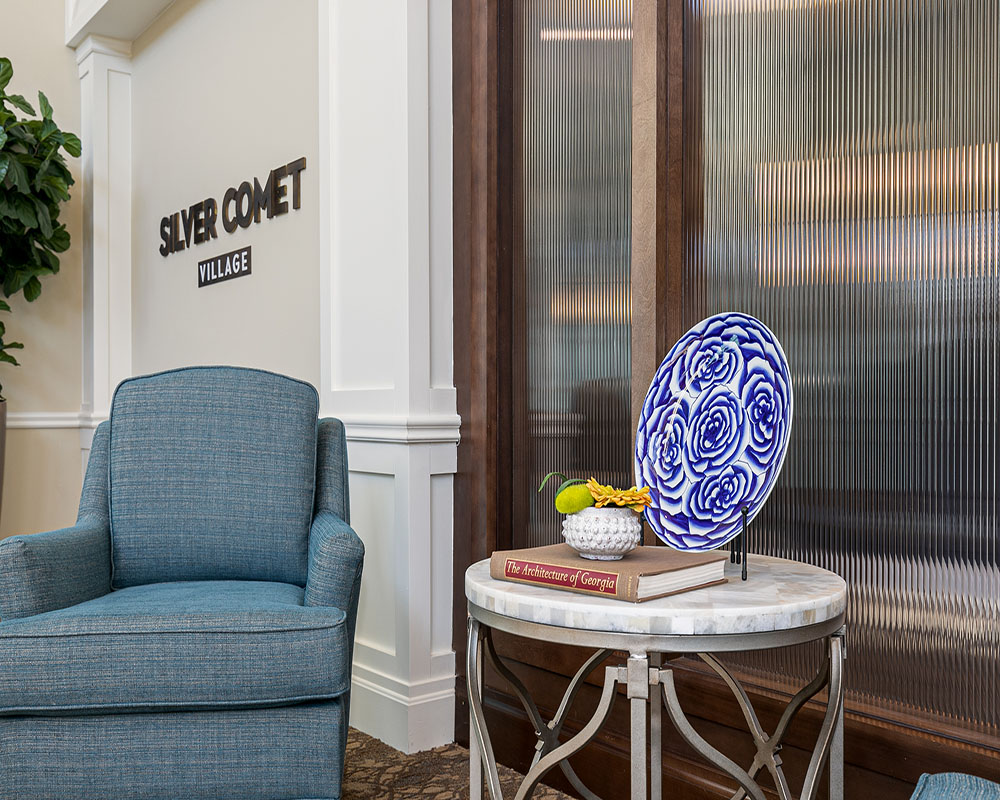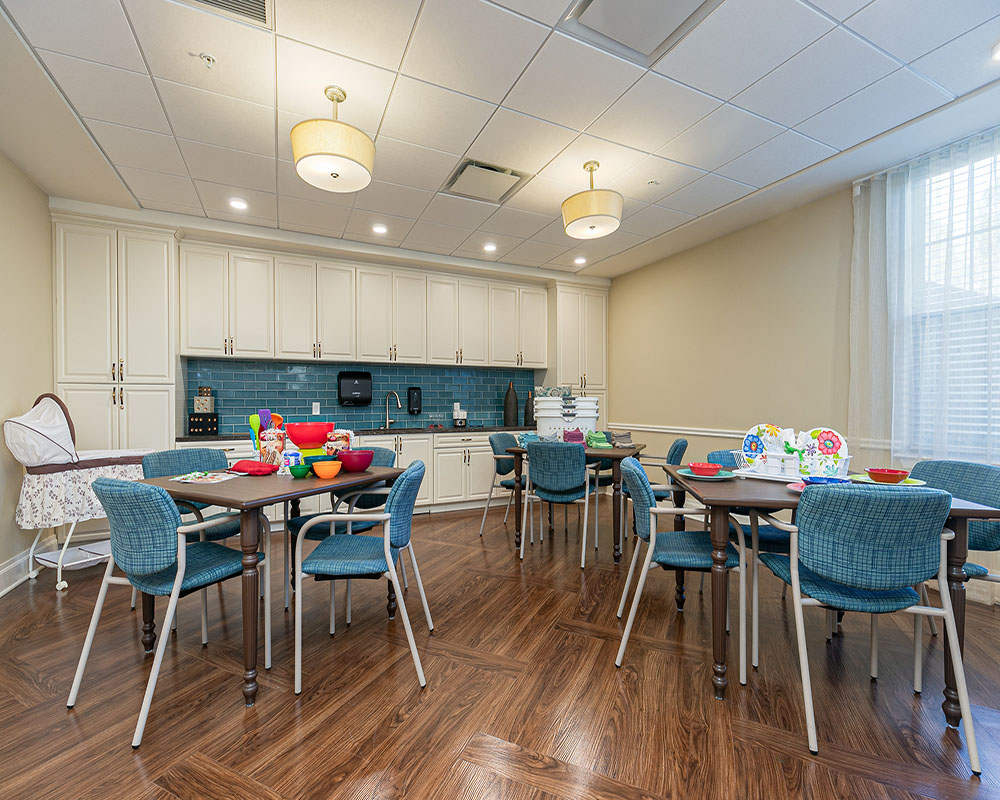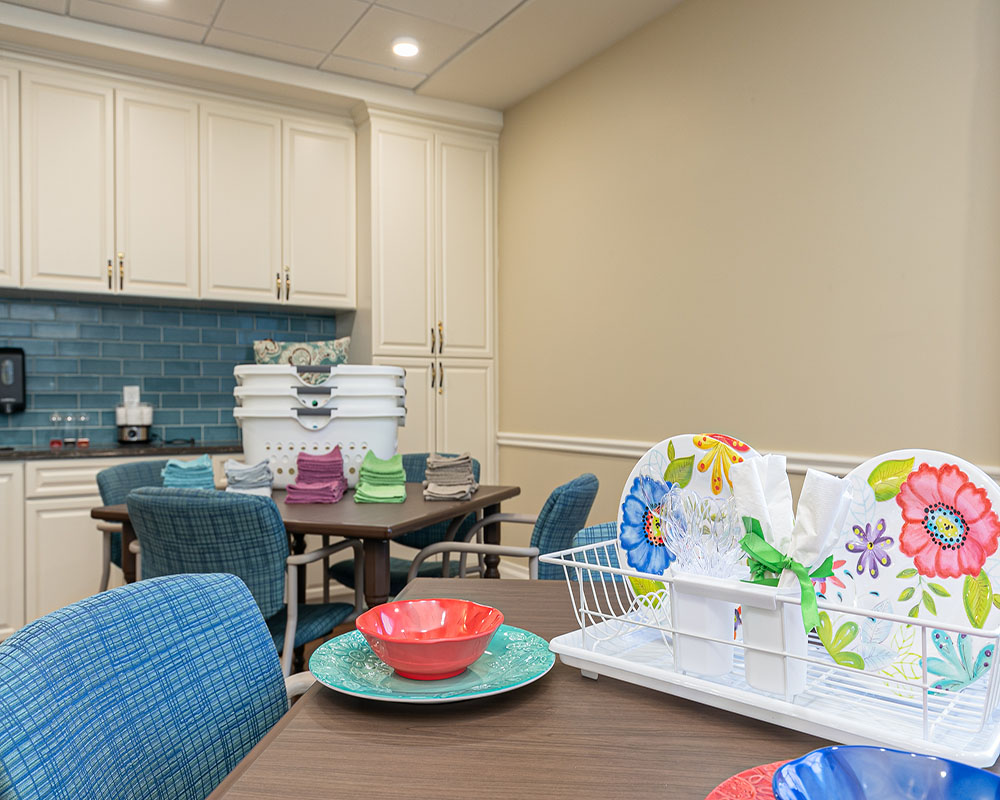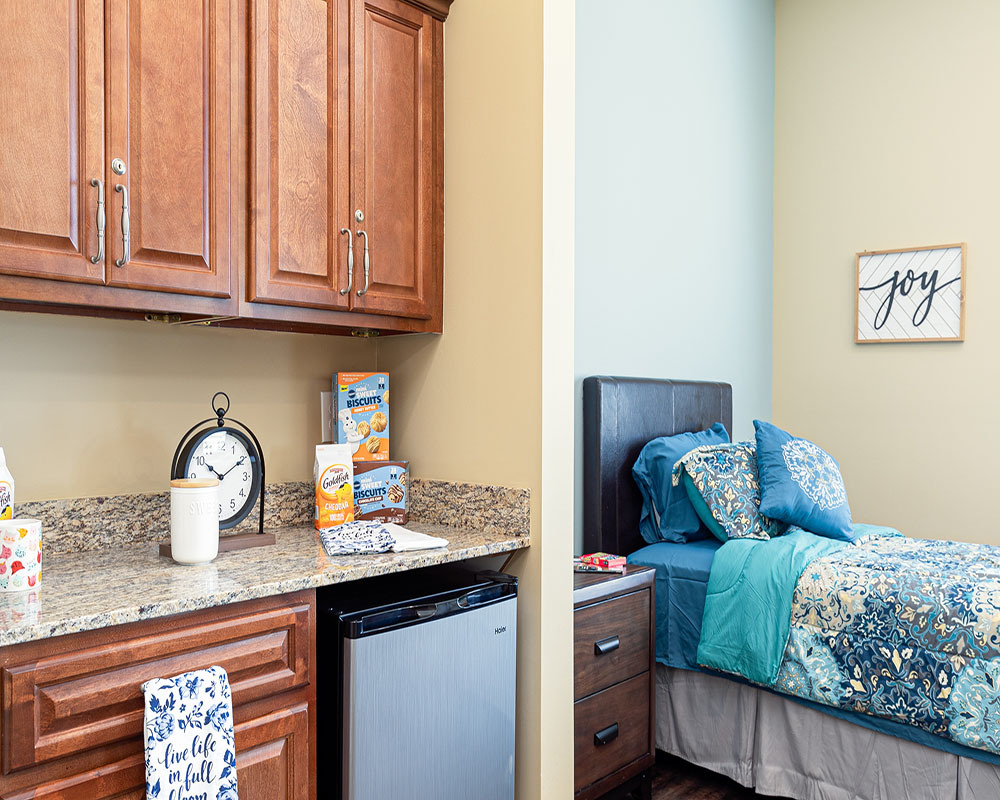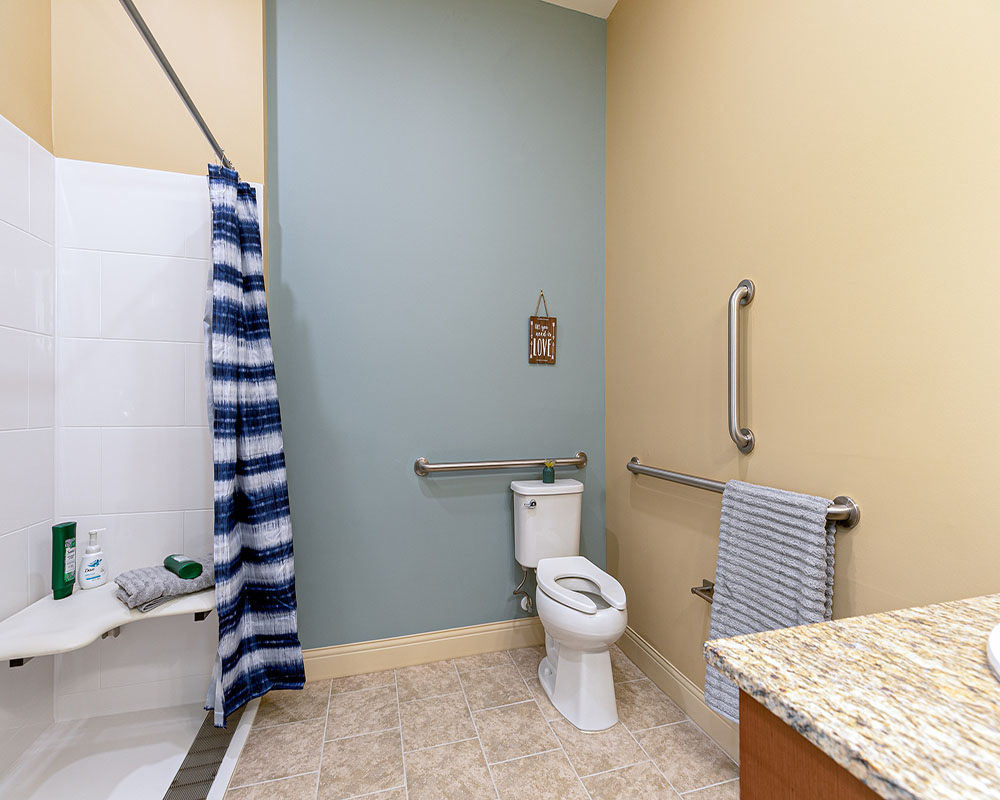A dementia diagnosis can quickly alter the life of an individual and their family. Caring for a parent with dementia presents itself with challenges and can be an overwhelming yet rewarding experience.
Dementia will likely change your parent as their symptoms progress, thereby changing the dynamic of your relationship. Through altering communication skills, becoming flexible, establishing a routine, and asking for help, individuals can continue to care for their parents with dementia.
Memory care can help lessen families’ stress by providing quality, professional care to our residents experiencing cognitive impairment.
challenges with dementia
Dementia is an umbrella term for several symptoms of cognitive decline. The most common form of dementia is Alzheimer’s disease. Dementia impairs an individual’s cognitive function and affects their memory, behavior, communication, decision-making abilities, and relationships, all of which impact their activities of daily living.
Symptoms of dementia are progressive. Over time, an individual’s cognitive impairment will likely worsen. There may come a time when your parent cannot safely care for themselves. Individuals with dementia may require full-time professional support provided in memory care communities.
tips for caregiving
Alter Your Communication
Dementia often impacts an individual’s ability to communicate with others due to cognitive decline and short-term memory loss. Language abilities are sometimes affected, resulting in difficulty speaking or finding the right word. Your parent may easily lose their train of thought, rely on gestures instead of their words, or speak less often.
To effectively speak and engage with your parent, you may have to alter your communication. Some helpful tips include:
- Chatting face-to-face
- Asking simple questions
- Limiting distractions
- Practicing patience
As your loved one’s cognitive abilities shift, so too must your way of communicating. Use simple language, speak slowly, and ask yes or no questions. Focus on the nonverbal cues and maintain patience—it can take longer for your loved one to process what’s been said.
Become Flexible
Dementia can lead to unpredictable behaviors and mood swings. Your parent may experience good days where they’re calm, attentive, and feel like themselves and bad days where they are agitated, irritated, and confused.
Changes in their cognitive abilities can lead to changes in these behaviors and moods, as well as memory, their ability to communicate, and their ability to complete activities of daily living. Gradually, they become more dependent and require assistance to complete tasks.
Being flexible means adapting to their changing needs based on their cognitive abilities daily and being prepared for the emotional aspects of caregiving.
Develop a Routine
Routines provide a structure that can be reassuring and calming for someone with dementia. A daily plan can help reduce anxiety, improve mood, reduce agitation, support memory, and instill a sense of predictability. Regular wake-up times, mealtimes, activities, leisure time, scheduled visits, and bedtime can immensely benefit you and your parent.
No routine is set in stone. Be flexible enough to allow for spontaneous activities. Explore and adjust your parent’s routine as you learn what they respond well to. Changes in the stage of your parent’s cognitive abilities will likely lead to changes in their daily routine.
Be mindful of your parent’s mood and response to certain activities. Consider allowing them to rest or change the activity if they seem frustrated or bored.
Ask for Help
The work of a caregiver can be overwhelming and rewarding. Watching your parent experience cognitive decline is difficult. To take care of yourself and your parent, you may need to seek help from family or friends when necessary. It takes a village to care for a loved one.
Caregiver burnout is serious. It’s a state of physical, emotional, and mental exhaustion that may manifest as a lack of energy, irritability, or resentment toward the person you’re caring for. Burnout can arise from prolonged stress and the demands of caregiving and can have serious repercussions for your well-being and your ability to provide care.
Professional help may include accessing respite care or memory care for your parent if you recognize that your parent requires more support. You can’t care for someone else without caring for your health.
consider memory care
Memory care is a specialized form of long-term care that caters to the specific needs of those with dementia and Alzheimer’s. It provides activities that stimulate cognitive function, routine for structure, a safe environment, and staff trained in memory care. These tools can offer a higher quality of life for those individuals whose conditions have progressed to the point where they need full-time care and support that may be difficult to provide at home.
Consider these options as part of the caregiving plan, not a relinquishment of responsibility. They can offer much-needed rest for the caregiver without compromising the safety or well-being of the person with dementia.

schedule a visit
Learning and adjusting to a new routine and lifestyle for your parent with dementia may be challenging at times but also very rewarding. It takes a village to care for a loved one! Schedule a visit with our team at Silver Comet Village to learn how our memory care community can support your family as you navigate caregiving.














